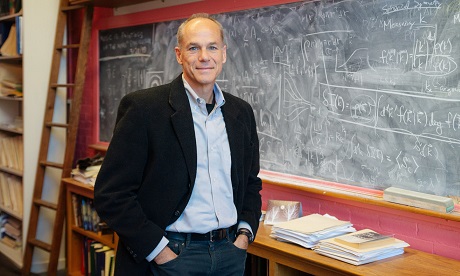A physicist’s exceptional contribution to affirming life’s spiritual dimension has seen him honoured with the NZ$1.9 million Templeton Prize for 2019.
“Science doesn’t want to take God away from people, even if some scientists do,” says Marcelo Gleiser, a professor of physics and astronomy.
Rather, science and spirituality represent complementary expressions of humanity’s curiosity about the unknown.
“My mission is to bring back to science, and to the people who are interested in science, this attachment to the mysterious, to make people understand that science is just one other way for us to engage with the mystery of who we are,” Gleiser says.
Although he does not believe in God, he refuses to write off the possibility of a creator of the universe completely. Atheism and science don’t go together, he says.
“You may not believe in God, but to affirm its nonexistence with certainty is not scientifically consistent.”
He regards science as a spiritual quest to understand the origins of existence and life on Earth.
Evan Thompson, who is the professor of philosophy at the University of British Columbia, commended Gleiser for “bringing together people from different cultures and religious backgrounds into a global conversation on the importance of going beyond old stereotypes to celebrate the human condition and our role as planetary custodians.”
Brazilian-born Gleiser, director of Dartmouth’s Institute for Cross-Disciplinary Engagement, has made space for science and the humanities to work together on questions of meaning and spirituality.
He has also participated in scientific dialogue with Catholic clergy though, as an agnostic, he opposes biblical literalism. Nor does he see a place for religious texts to “explain or predict and describe natural phenomena in scientific ways”.
Pew Research has found the faithful often see science and religion going hand-in-hand, with regular churchgoers less likely to see the two spheres of life in conflict (50%) than those who attend seldom or never (73%).
Other Templeton Prize winners have included representatives of Christianity, Judaism, Islam, Hinduism and Buddhism. St Teresa of Kolkata was awarded the prize in 1973.
Source
- Christianity Today
- Daily Mail
- Crux
- Image: NPR
News category: World.




